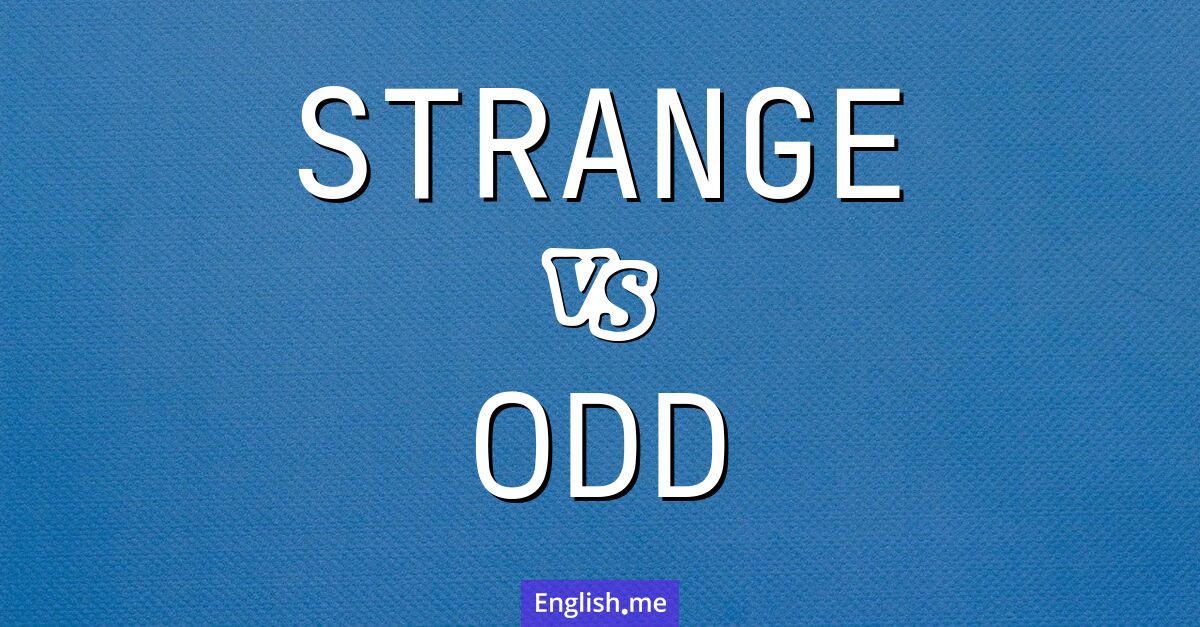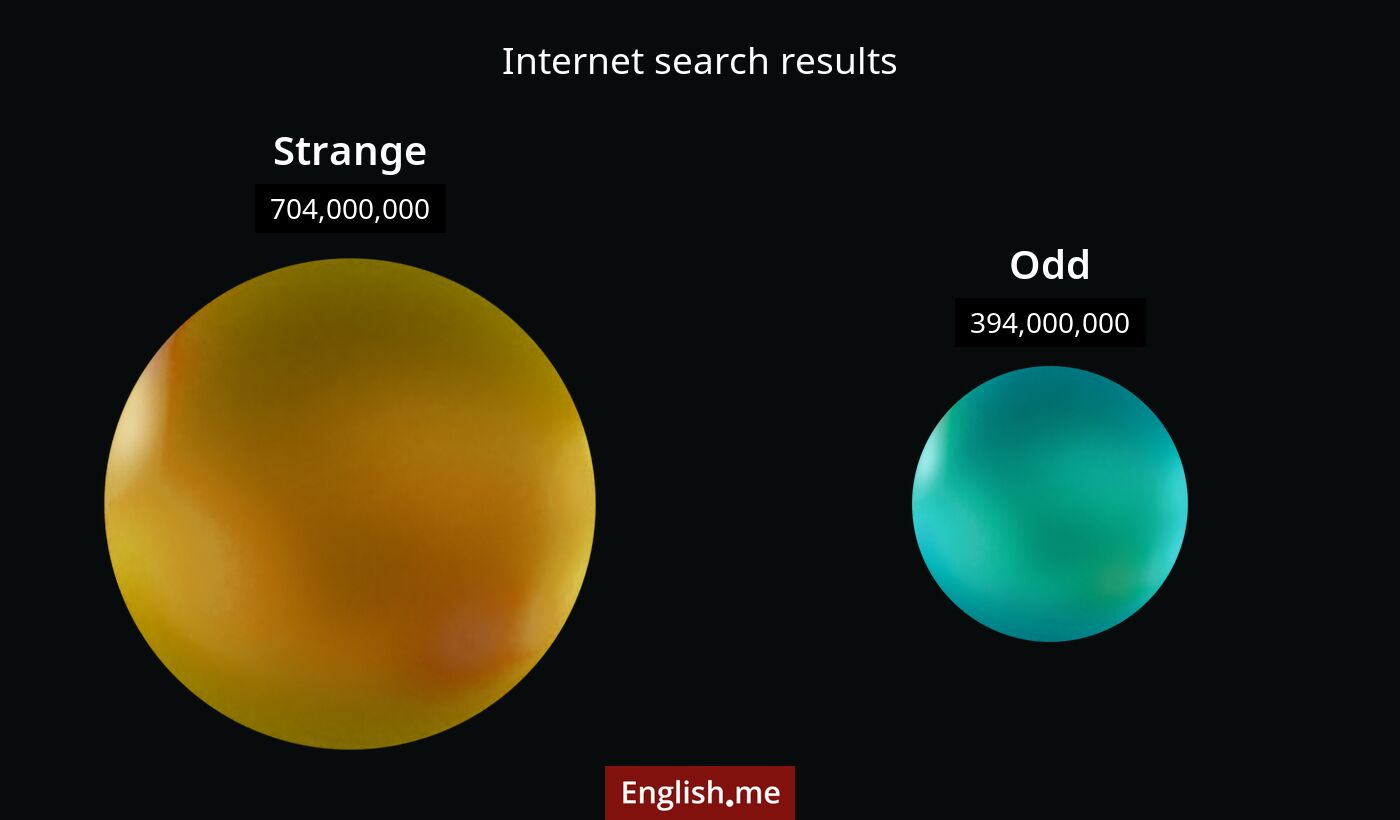"Strange" vs. "odd": understanding the difference
Reviewed and edited by  Anwar Kareem 14/12/2024, 09:50
Anwar Kareem 14/12/2024, 09:50
English.me team member

 What is similar?
What is similar?
Both "strange" and "odd" are adjectives used to describe something unusual or out of the ordinary.
 What is different?
What is different?
While both words denote something uncommon, "strange" often implies a sense of unfamiliarity or mystery, whereas "odd" can suggest something is peculiar or slightly eccentric. Additionally, "odd" can refer to integers not divisible by two in mathematics.
 Which one is more common?
Which one is more common?

 Examples of usage
Examples of usage
Strange- She heard a strange noise coming from the attic.
- It's strange that he didn't reply to any of our messages.
- They found themselves in a strange city without any directions.
- He has some odd habits that make his friends laugh.
- There's an odd number of chairs in the room.
- I found it odd that the store was closed during regular hours.

 English
English español
español française
française italiano
italiano deutsche
deutsche 日本語
日本語 polski
polski česky
česky svenska
svenska Türkçe
Türkçe Nederlands
Nederlands